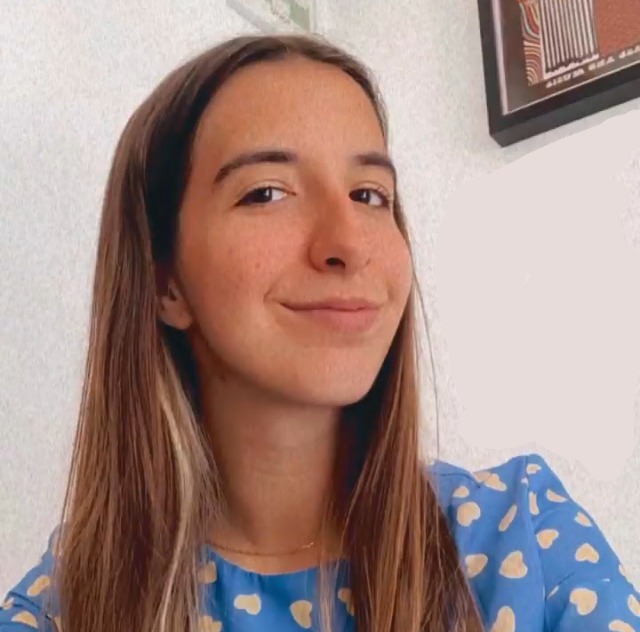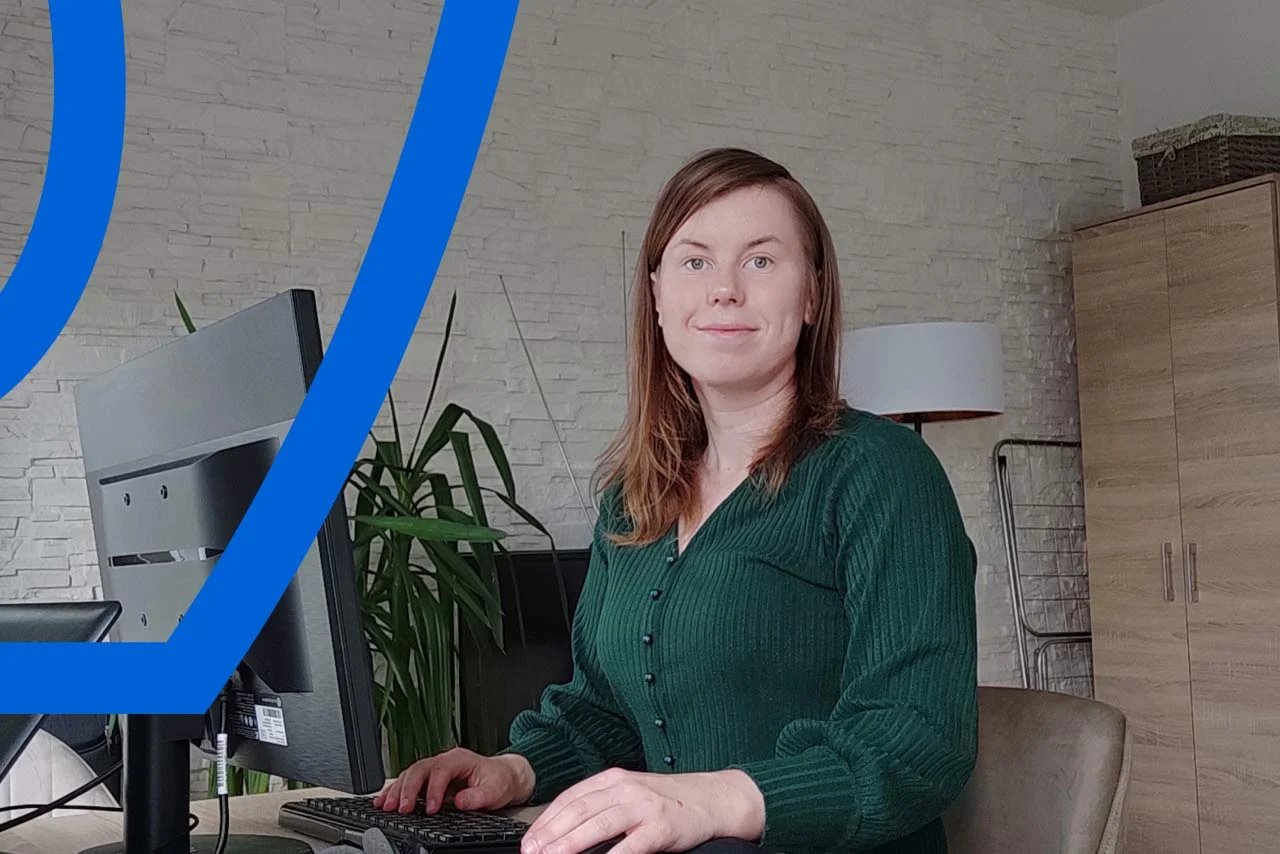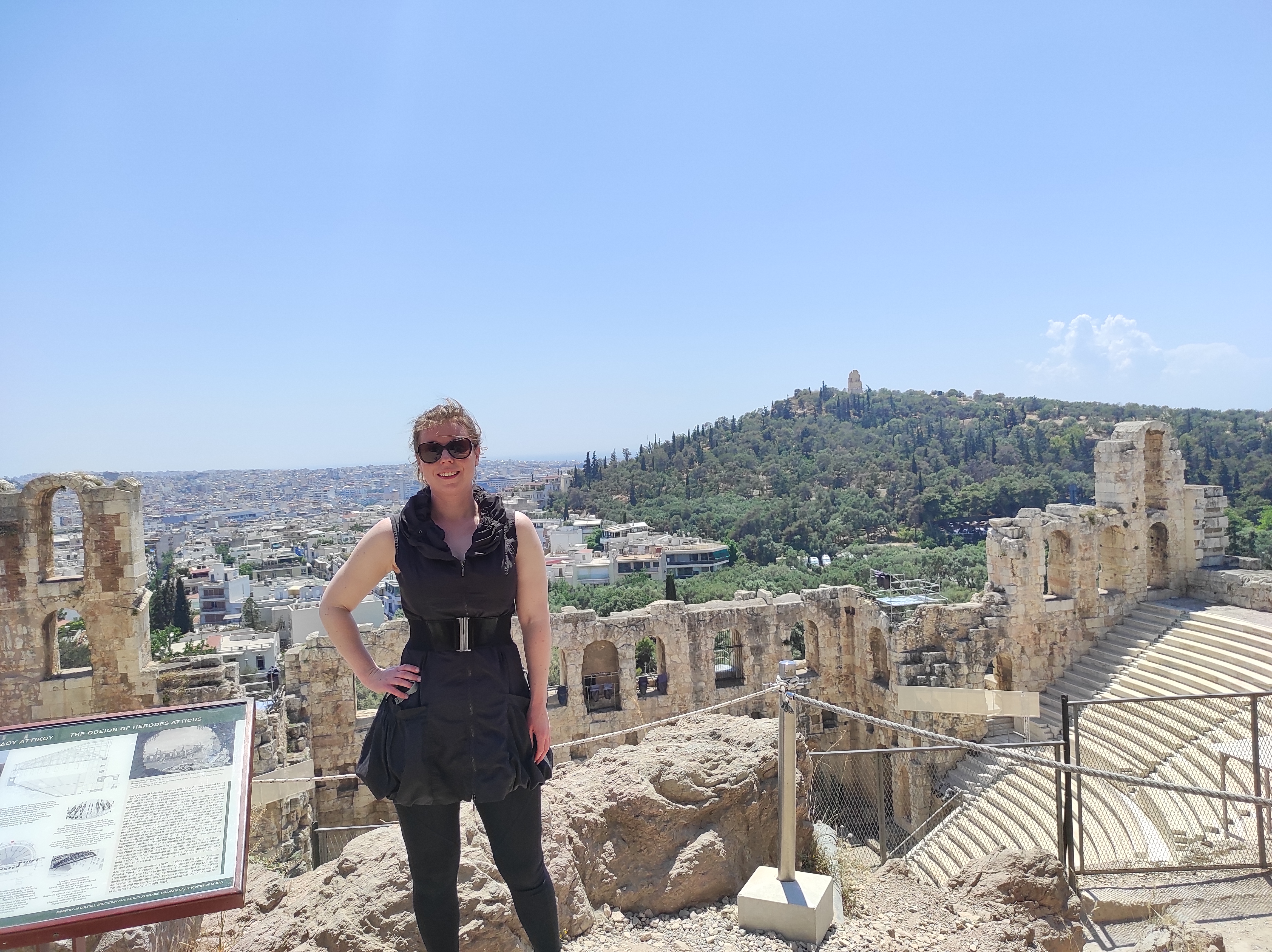A Finnish Content Specialist based in sunny Spain: Erika Lund’s solo story

on agosto 29, 2022 • 3 min of reading

Meet Erika. Erika's originally from Finland, but as a self-styled "serial-immigrant" she's lived everywhere from Iceland to sunny Florida. When she was unable to find a remote-friendly full time job, she opted to start freelancing from her new adopted home in Spain. Thanks to the efforts of the Xolo Spain team, being an autónomo has been an overwhelmingly positive experience for her!
We asked Erika to tell us a bit more about her decision to go freelance: what she loves about it, what's been hard for her, and what wisdom she'd pass on to other wannabe independents, nomads and working wanderers. Here's what she had to say:
Tell us who you are, where you are from, where you live now, what you do for a living (personally and professionally)
My name is Erika and I was born and raised in Finland. One could describe me as something between a migrant and a serial immigrant, since I have lived and worked in various places around the globe, ranging from the barren Iceland to the tropical paradise Florida.
Currently I am a resident of the lovely seaside town Rota in Spain. However, this summer I am AirBnB-hopping abroad with my four wheels (a 22 kg suitcase) to escape the town’s busy tourist season and the Andalusian heat. So I guess I fit into the definition of a digital nomad, too.
I have built my career on my language combo Swedish and Finnish, and worked in different roles in the e-commerce, tourism and iGaming industry. I became a freelancer in 2021 and now I work as a Content Specialist.
Tell us about your decision to go freelance –was there a major event that pushed you to make the decision or was it something you always wanted to try?
My decision to become a freelancer was a mix of push and pull factors. I have always wanted to try being my own boss and Spain offers some nice discounts for first-time autónomos.
Before, I used to move where I got a job, which usually meant crowded cities like Dublin and Barcelona. This time around I already knew where I wanted to be based, but I also knew I stood no chance on the local job market with my limited Spanish skills. I couldn’t find an interesting, 100% remote job, so I decided to go freelance.
What is your favorite part of being a freelancer?
Freedom. I am free to decide when and where I work, and what to work in. Apart from tax rules and insurance, there is nothing stopping me from working abroad for a while.
I have also grown fond of the Spanish siesta culture and love going for a walk or a swim in the afternoon while it is still sunny outside. Sometimes I end up working on Sundays too, when most places are closed. But I make sure to schedule in lazy days, since it is important for my well-being to be able to rest, play some Mario Kart with my friends, and reset the brain.
What are the difficulties you face being a freelancer and how do you deal with them?
To be honest, being a freelancer has been much smoother than expected so far. I guess most of the credit goes to Xolo (especially José) for taking care of the Spanish bureaucracy part, and answering the questions and concerns I have had. It is nice that Xolo also can handle the yearly personal income tax aka Renta.There is still some bureaucracy that cannot be avoided. Like reading up about tax rules and social security and figuring out what applies to my situation. But I am no stranger to this considering I have completed the residence registration (and de-registration) process in more than five countries so far.I think the most difficult part has been agreeing on an accurate rate, since you have to take paid holidays, pensions, sick-leave, job security, etc. into account when comparing freelance rates with a regular employee salary.
What is the best advice for others who are just starting out on their freelance journey?
My advice is to do a slow transition into the freelance world. In most cases, you only need a computer to get started, so wait with investing in fancy equipment. By not buying everything in the same period you will also be able to claim more expense deductions.
Just after I had completed my registration for autónomo, I actually got a part-time job offer. So the first half year I worked 9-13 Monday to Friday as a regular employee, and then did my freelance work in the evenings and some weekends. Now I am a full-time freelancer, but I plan to keep the set morning working hours.
I also recommend trying different small projects to find what you like to focus on. For example, I dipped my toes in video transcribing, but quickly realized I prefer my beloved content writing and SEO. To quote a sign I saw in an airport: “Better an oops than a what if.” 
About Erika
As a Swedish-speaking Finn, Erika is fluent in three languages. She holds a Bachelor degree in Tourism Economics with a specialization in Marketing, and has found a lifestyle that combines her traveling passion with a fulfilling career. She is not afraid of new challenges and adapts well to uncertainty.
